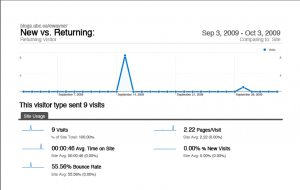Critical E ducation is a looking to expand its pool of manuscript reviewers.
ducation is a looking to expand its pool of manuscript reviewers.
If you are interested in contributing to the broad, multi-disciplinary field of critical education by participating in the peer review process, we encourage you to register with Critical Education as a reviewer.
We define critical education broadly as a field or approach that works theoretically and practically toward social change and addresses social injustices that result from various forms of oppression in globalized capitalist societies and under neoliberal governance.
We are looking for reviewers with expertise from across the broad range of education scholarship including but not limited to various: forms of research (e.g., empirical, theoretical, philosophical), contexts (e.g., early childhood, primary and secondary education, higher education, informal and popular education), conceptual orientations (e.g., critical pedagogy, anarchism, Marxism, critical postmodernism) and subfields (e.g., anti-racism, alternative education, critical and media literacy, disability studies, gender and sexuality, de/colonial and Indigenous education, leadership and policy studies, climate, outdoor, and place-based education, teacher education, solidarity and social movements, disciplinary subjects, etc.).
Critical Education uses a double-blind review process and follows the guidelines and practices of the Committee on Publication Ethics.
How do I sign up as a reviewer for Critical Education?
If you are already a registered user of the journal, sign in and from the drop-down menu below your username (top-right corner) choose View Profile > Role > check Reviewer box and list the key words that describe your areas of expertise. Before closing the profile window be sure to click the Save button on the bottom left of the page.
If you are not yet registered with Critical Education, use the Register link at the top of the journal home page and create an account. When creating your profile be sure to check the Reviewer role box and list the key words that describe your areas of expertise. Don’t forget to click the Save button.
Founded in 2010, Critical Education is an international, diamond open-access (no fees to read or publish), peer-reviewed journal, which publishes articles that critically examine contemporary education contexts and practices. Critical Education is published by the Institute for Critical Education Studies and hosted by The University of British Columbia Library. Critical Education is indexed in a number of scholarly databases including Scopus, EBSCO, DOAJ, and ERIC and is a member of the Free Journal Network. For more about Critical Education see: https://ices.library.ubc.ca/index.php/criticaled/about
 Follow
Follow

